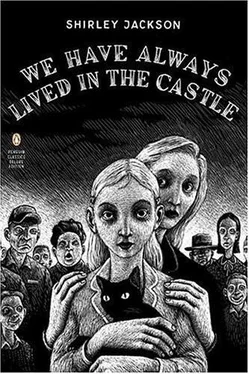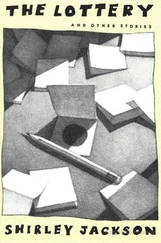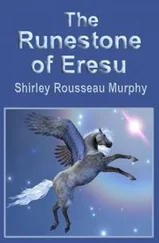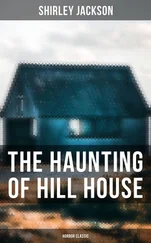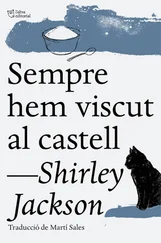Shirley Jackson - We Have Always Lived in the Castle
Здесь есть возможность читать онлайн «Shirley Jackson - We Have Always Lived in the Castle» весь текст электронной книги совершенно бесплатно (целиком полную версию без сокращений). В некоторых случаях можно слушать аудио, скачать через торрент в формате fb2 и присутствует краткое содержание. Город: New York, Год выпуска: 2006, ISBN: 2006, Издательство: Penguin Books, Жанр: Триллер, gothic_novel, на английском языке. Описание произведения, (предисловие) а так же отзывы посетителей доступны на портале библиотеки ЛибКат.
- Название:We Have Always Lived in the Castle
- Автор:
- Издательство:Penguin Books
- Жанр:
- Год:2006
- Город:New York
- ISBN:978-1-101-53065-8
- Рейтинг книги:3 / 5. Голосов: 1
-
Избранное:Добавить в избранное
- Отзывы:
-
Ваша оценка:
- 60
- 1
- 2
- 3
- 4
- 5
We Have Always Lived in the Castle: краткое содержание, описание и аннотация
Предлагаем к чтению аннотацию, описание, краткое содержание или предисловие (зависит от того, что написал сам автор книги «We Have Always Lived in the Castle»). Если вы не нашли необходимую информацию о книге — напишите в комментариях, мы постараемся отыскать её.
is a deliciously unsettling novel about a perverse, isolated, and possibly murderous family and the struggle that ensues when a cousin arrives at their estate.
We Have Always Lived in the Castle — читать онлайн бесплатно полную книгу (весь текст) целиком
Ниже представлен текст книги, разбитый по страницам. Система сохранения места последней прочитанной страницы, позволяет с удобством читать онлайн бесплатно книгу «We Have Always Lived in the Castle», без необходимости каждый раз заново искать на чём Вы остановились. Поставьте закладку, и сможете в любой момент перейти на страницу, на которой закончили чтение.
Интервал:
Закладка:
“That’s right,” Dunham said, and he laughed.
“The way they live up in their fine old private estate, with their fences and their private path and their stylish way of living.” He always went on until he was tired. When Jim Donell thought of something to say he said it as often and in as many ways as possible, perhaps because he had very few ideas and had to wring each one dry. Besides, each time he repeated himself he thought it was funnier; I knew he might go on like this until he was really sure that no one was listening any more, and I made a rule for myself: Never think anything more than once, and I put my hands quietly in my lap. I am living on the moon, I told myself, I have a little house all by myself on the moon.
“Well,” Jim Donell said; he smelled, too. “I can always tell people I used to know the Blackwoods. They never did anything to me that I can remember, always perfectly polite to me. Not,” he said, and laughed, “that I ever got invited to take my dinner with them, nothing like that.”
“That’s enough right there,” Stella said, and her voice was sharp. “You go pick on someone else, Jim Donell.”
“Was I picking on anyone? You think I wanted to be asked to dinner? You think I’m crazy? ”
“Me,” Dunham said, “I can always tell people I fixed their broken step once and never got paid for it.” That was true. Constance had sent me out to tell him that we wouldn’t pay carpenter’s prices for a raw board nailed crookedly across the step when what he was supposed to do was build it trim and new. When I went out and told him we wouldn’t pay he grinned at me and spat, and picked up his hammer and pried the board loose and threw it on the ground. “Do it yourself,” he said to me, and got into his truck and drove away. “Never did get paid for it,” he said now.
“That must of been an oversight, Joe. You just go right up and speak to Miss Constance Blackwood and she’ll see you get what’s coming to you. Just if you get invited to dinner, Joe, you just be sure and say no thank you to Miss Blackwood.”
Dunham laughed. “Not me,” he said. “I fixed their step for them and never did get paid for it.”
“Funny,” Jim Donell said, “them getting the house fixed up and all, and planning to move away all the time.”
“Mary Katherine,” Stella said, coming down inside the counter to where I was sitting, “you go along home. Just get up off that stool and go along home. There won’t be any peace around here until you go.”
“Now, that’s the truth,” Jim Donell said. Stella looked at him, and he moved his legs and let me pass. “You just say the word, Miss Mary Katherine, and we’ll all come out and help you pack. Just you say the word, Merricat.”
“And you can tell your sister from me—” Dunham started to say, but I hurried, and by the time I got outside all I could hear was the laughter, the two of them and Stella.
I liked my house on the moon, and I put a fireplace in it and a garden outside (what would flourish, growing on the moon? I must ask Constance) and I was going to have lunch outside in my garden on the moon. Things on the moon were very bright, and odd colors; my little house would be blue. I watched my small brown feet go in and out, and let the shopping bag swing a little by my side; I had been to Stella’s and now I needed only to pass the town hall, which would be empty except for the people who made out dog licenses and the people who counted traffic fines from the drivers who followed the highway into the village and on through, and the people who sent out notices about water and sewage and garbage and forbade other people to burn leaves or to fish; these would all be buried somewhere deep inside the town hall, working busily together; I had nothing to fear from them unless I fished out of season. I thought of catching scarlet fish in the rivers on the moon and saw that the Harris boys were in their front yard, clamoring and quarrelling with half a dozen other boys. I had not been able to see them until I came past the corner by the town hall, and I could still have turned back and gone the other way, up the main highway to the creek, and then across the creek and home along the other half of the path to our house, but it was late, and I had the groceries, and the creek was nasty to wade in our mother’s brown shoes, and I thought, I am living on the moon, and I walked quickly. They saw me at once, and I thought of them rotting away and curling in pain and crying out loud; I wanted them doubled up and crying on the ground in front of me.
“Merricat,” they called, “Merricat, Merricat,” and moved all together to stand in a line by the fence.
I wondered if their parents taught them, Jim Donell and Dunham and dirty Harris leading regular drills of their children, teaching them with loving care, making sure they pitched their voices right; how else could so many children learn so thoroughly?
Merricat, said Connie, would you like a cup of tea?
Oh no, said Merricat, you’ll poison me.
Merricat, said Connie, would you like to go to sleep?
Down in the boneyard ten feet deep!
I was pretending that I did not speak their language; on the moon we spoke a soft, liquid tongue, and sang in the starlight, looking down on the dead dried world; I was almost halfway past the fence.
“Merricat, Merricat!”
“Where’s old Connie—home cooking dinner?”
“Would you like a cup of tea?”
It was strange to be inside myself, walking steadily and rigidly past the fence, putting my feet down strongly but without haste that they might have noticed, to be inside and know that they were looking at me; I was hiding very far inside but I could hear them and see them still from one corner of my eye. I wished they were all lying there dead on the ground.
“Down in the boneyard ten feet deep.”
“Merricat!”
Once when I was going past, the Harris boys’ mother came out onto the porch, perhaps to see what they were all yelling so about. She stood there for a minute watching and listening and I stopped and looked at her, looking into her flat dull eyes and knowing I must not speak to her and knowing I would. “Can’t you make them stop?” I asked her that day, wondering if there was anything in this woman I could speak to, if she had ever run joyfully over grass, or had watched flowers, or known delight or love. “Can’t you make them stop?”
“Kids,” she said, not changing her voice or her look or her air of dull enjoyment, “don’t call the lady names.”
“Yes, ma,” one of the boys said soberly.
“Don’t go near no fence. Don’t call no lady names.”
And I walked on, while they shrieked and shouted and the woman stood on the porch and laughed.
Merricat, said Connie, would you like a cup of tea?
Oh, no, said Merricat, you’ll poison me.
Their tongues will burn, I thought, as though they had eaten fire. Their throats will burn when the words come out, and in their bellies they will feel a torment hotter than a thousand fires.
“Goodbye, Merricat,” they called as I went by the end of the fence, “don’t hurry back.”
“Goodbye, Merricat, give our love to Connie.”
“Goodbye, Merricat,” but I was at the black rock and there was the gate to our path.
2
I had to put down the shopping bag to open the lock on the gate; it was a simple padlock and any child could have broken it, but on the gate was a sign saying PRIVATE NO TRESPASSING and no one could go past that. Our father had put up the signs and the gates and the locks when he closed off the path; before, everyone used the path as a short-cut from the village to the highway four-corners where the bus stopped; it saved them perhaps a quarter of a mile to use our path and walk past our front door. Our mother disliked the sight of anyone who wanted to walking past our front door, and when our father brought her to live in the Blackwood house, one of the first things he had to do was close off the path and fence in the entire Blackwood property, from the highway to the creek. There was another gate at the other end of the path, although I rarely went that way, and that gate too had a padlock and a sign saying PRIVATE NO TRESPASSING. “The highway’s built for common people,” our mother said, “and my front door is private.”
Читать дальшеИнтервал:
Закладка:
Похожие книги на «We Have Always Lived in the Castle»
Представляем Вашему вниманию похожие книги на «We Have Always Lived in the Castle» списком для выбора. Мы отобрали схожую по названию и смыслу литературу в надежде предоставить читателям больше вариантов отыскать новые, интересные, ещё непрочитанные произведения.
Обсуждение, отзывы о книге «We Have Always Lived in the Castle» и просто собственные мнения читателей. Оставьте ваши комментарии, напишите, что Вы думаете о произведении, его смысле или главных героях. Укажите что конкретно понравилось, а что нет, и почему Вы так считаете.
